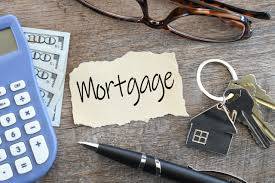Types of Mortgages: Equitable Mortgage
An equitable
mortgage is a type of
mortgage where the borrower (mortgagor) pledges property as security for a loan
without transferring the legal title to the lender (mortgagee). Unlike a legal
mortgage, an equitable mortgage relies on an agreement or conduct to create a
security interest, making it more flexible but less secure for lenders. In
Ghana and Africa, equitable mortgages play a significant role in providing
access to credit, especially in cases where borrowers cannot meet the formal
requirements of a legal mortgage.
Definition of Equitable Mortgage
An equitable
mortgage arises when a
borrower deposits property title deeds or other documents of ownership with a
lender as collateral for a loan, accompanied by an agreement to create a
security interest in the property.
- No
Legal Title Transfer: The borrower retains ownership of the property.
- Created
by Agreement: Often established through a simple written agreement
or even oral consent.
- Security
Interest: The lender
gains an interest in the property that can be enforced in equity, not law.
Characteristics of Equitable Mortgages
- Lack
of Formality
- Equitable
mortgages do not require formalities like registration or the execution of
a deed, making them quicker to create.
- Retention
of Title
- Borrowers
retain legal ownership of the property, and lenders hold a beneficial
interest.
- Security
through Possession
- The lender
typically holds title deeds or other property-related documents as evidence
of the mortgage.
- Enforcement
in Equity
- Lenders can
enforce their rights in equity, usually through the courts, to recover
debts if the borrower defaults.
Creation of Equitable Mortgages
- Deposit
of Title Deeds
- Borrowers
deposit title deeds with the lender as security for the loan.
- In Ghana
and many African countries, this method is commonly used when borrowers
lack access to formal documentation.
- Written
or Verbal Agreement
- An
agreement between the lender and borrower may establish an equitable
mortgage, even in the absence of a formal mortgage deed.
- Loan
Advances Against Property
- Lenders may
advance loans based on the borrower’s pledge of ownership documents.
Advantages of Equitable Mortgages
- Speed
and Simplicity
- Easier and
faster to create compared to legal mortgages, as they involve fewer
formalities.
- Flexibility
- Suitable
for borrowers who lack the resources or time to complete the rigorous
requirements of legal mortgages.
- Cost-Effectiveness
- No
registration fees or legal costs are required for establishing an
equitable mortgage.
- Access
to Credit
- Offers an
avenue for credit access to individuals who may not qualify for a legal
mortgage.
Disadvantages of Equitable Mortgages
- Weaker
Security for Lenders
- The
lender’s rights are limited compared to a legal mortgage, as the borrower
retains legal title.
- Difficulty
in Enforcement
- Lenders
must rely on equitable remedies, which can be time-consuming and
uncertain.
- Risk
of Fraud
- Borrowers
may pledge the same property to multiple lenders without proper
documentation.
- Lack
of Public Notice
- Since
equitable mortgages are not registered, other creditors may not be aware
of the lender’s interest in the property.
Equitable Mortgages in Ghana
In Ghana,
equitable mortgages are recognized under the Land Act, 2020 (Act 1036) and are widely
used in informal financial transactions or when borrowers face difficulties
registering a legal mortgage.
Common Practices:
- Deposit
of Title Deeds: Borrowers deposit property documents with banks or
informal lenders to secure loans.
- Oral
Agreements: In rural
areas, verbal agreements and customary practices often govern equitable
mortgages.
- Use
by Small Businesses: Equitable mortgages are popular among small and
medium enterprises (SMEs) that cannot meet the strict requirements of legal
mortgages.
Legal Framework:
While the Land
Act recognizes equitable mortgages, it emphasizes the need for clear agreements
to avoid disputes and fraud. Courts in Ghana enforce equitable mortgages where
the borrower’s intent to create a security interest is evident.
Equitable Mortgages in Africa
Across Africa,
equitable mortgages serve as a practical alternative to legal mortgages,
especially in countries with complex land tenure systems or underdeveloped
financial infrastructure.
Examples:
- Kenya: banks and
microfinance institutions frequently accept deposits of title deeds as
collateral for loans.
- Nigeria: Equitable
mortgages are common in informal lending where borrowers use property
documents to secure loans.
- South
Africa: Equitable
mortgages are less prevalent due to the availability of robust legal
mortgage frameworks.
Challenges:
- Informal
Land Tenure: In many
African countries, unclear land ownership makes it difficult to establish
equitable mortgages.
- Enforcement
Issues: Lenders
face significant hurdles enforcing equitable mortgages in courts due to
legal and procedural complexities.
Enforcement of Equitable Mortgages
- Court
Proceedings
- Lenders
must seek court intervention to enforce their rights, such as foreclosing
on the property or compelling repayment.
- Sale
of Property
- Courts may
authorize the sale of the property to recover the lender’s money.
- Equity
Principles
- Courts
apply equitable principles, ensuring fairness in enforcement while
protecting the borrower’s rights.
Comparison with Legal Mortgages
|
Aspect |
Legal
Mortgage |
Equitable
Mortgage |
|
Ownership
Transfer |
Transfers legal
title to the lender. |
Borrower
retains legal title; lender holds security interest. |
|
Formality |
Requires
formalities like registration. |
Created
informally, often by deposit of title deeds. |
|
Enforcement |
Lender has
stronger legal remedies. |
Enforcement
relies on equitable principles. |
|
Cost |
Higher due to
registration and legal fees. |
Lower, as no
registration is required. |
Conclusion
Equitable
mortgages provide a flexible and accessible means of securing loans,
particularly for individuals and businesses unable to meet the stringent
requirements of legal mortgages. In Ghana and Africa, they address critical
financing gaps but require robust legal frameworks and public awareness to
minimize risks. Governments and financial institutions can enhance their
utility by simplifying land tenure systems and educating borrowers on their
obligations and rights.


